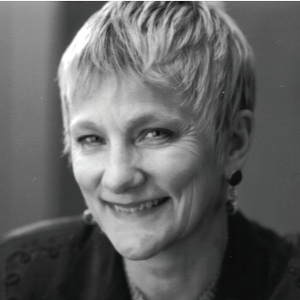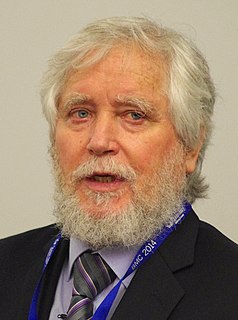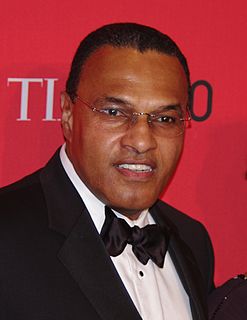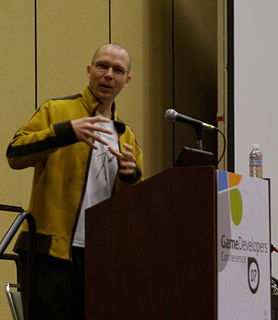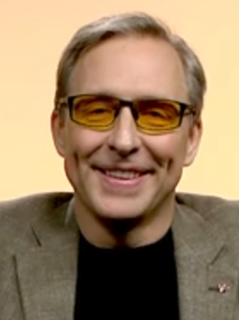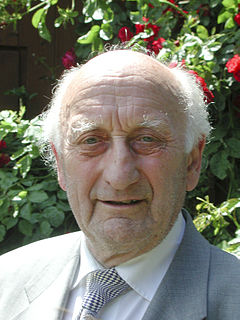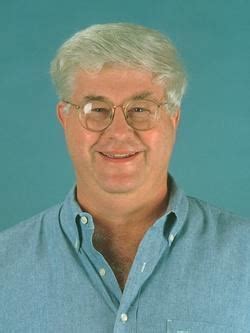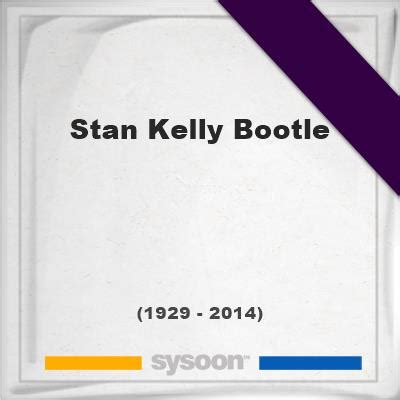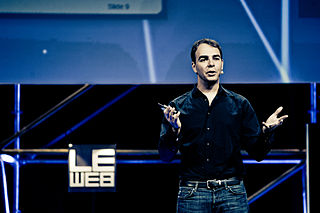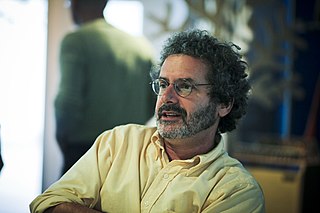Top 1200 Computer Science Quotes & Sayings
Explore popular Computer Science quotes.
Last updated on April 14, 2025.
What is the central core of the subject [computer science]? What is it that distinguishes it from the separate subjects with which it is related? What is the linking thread which gathers these disparate branches into a single discipline. My answer to these questions is simple -it is the art of programming a computer. It is the art of designing efficient and elegant methods of getting a computer to solve problems, theoretical or practical, small or large, simple or complex. It is the art of translating this design into an effective and accurate computer program.
You know, in college, I never got either degree, but I was a double-major in Computer Science and English. And English at Berkeley, where I went to school, is very much creatively-driven. Basically, the entire bachelor's degree in English is all about bullshitting. And Computer Science, which was my other major, was exactly the opposite of that. You had to know what you were doing, and you had to know what you were talking about.
One might say the computer is being used to program the child. In my vision, the child programs the computer, and in doing so, both acquires a sense of mastery over a piece of the most modern and powerful technology and establishes an intense contact with some of the deepest ideas from science, from mathematics, and from the art of intellectual model building.
The issues involved are sufficiently important that courses are now moving out of the philosophy departments and into mainstream computer science. And they affect everyone. Many of the students attracted to these courses are not technology majors, and many of the topics we discuss relate to ethical challenges that transcend the computer world.
My high school, the Illinois Mathematics and Science Academy, showed me that anything is possible and that you're never too young to think big. At 15, I worked as a computer programmer at the Fermi National Accelerator Laboratory, or Fermilab. After graduating, I attended Stanford for a degree in economics and computer science.
My background, I really am a computer hacker. I've studied computer science, I work in computer security. I'm not an actively a hacker, I'm an executive but I understand the mindset of changing a system to get the outcome that you want. It turns out to make the coffee, the problem is actually how the beans get turn into green coffee. That's where most of the problems happen.
Progress in computer science is made with the distribution of revolutionary software systems and the publication of revolutionary books. We don't need a fancy information system to alert us to these grand events; they will hit us in the face. Another good excuse for ignoring the literature is that, since everyone has strong beliefs about fundamentals but can't support those beliefs rationally or consistently convince non-believers, computer science is actually a religion.
If somebody is working on a new medicine, computer science helps us model those things. We have a whole group here in Seattle called the Institute for Disease Modelling that is a mix of computer science and math-type people, and the progress we're making in polio or plans for malaria or really driven by their deep insights.
The computer has evolved into a partner, a tool, and an environment--not just in science fiction, but in the public consciousness as well. Computers are no longer malevolent iron brains that manufacture tyrannical and oppressive answers; they are not a way to think, they are a place from which to think. The computer is an environment in which answers can be sought, created, manipulated and developed.
I think that it's extraordinarily important that we in computer science keep fun in computing. When it started out, it was an awful lot of fun. Of course, the paying customers got shafted every now and then, and after a while we began to take their complaints seriously. We began to feel as if we really were responsible for the successful, error-free perfect use of these machines. I don't think we are. I think we're responsible for stretching them, setting them off in new directions, and keeping fun in the house. I hope the field of computer science never loses its sense of fun.
The entire Internet, as well as the types of devices represented by the desktop computer, the laptop computer, the iPhone, the iPod, and the iPad, are a continuing inescapable embarrassment to science fiction, and an object lesson in the fallibility of genre writers and their vaunted predictive abilities.
I started my career as a journalist, writing about science and technology for 'Business Week' magazine. Then I decided to make a career shift. I went to graduate school in computer science, and I began developing educational technologies - in particular, technologies to engage children in creative learning experiences.
The term "informatics" was first defined by Saul Gorn of University of Pennsylvania in 1983 (Gorn, 1983) as computer science plus information science used in conjunction with the name of a discipline such as business administration or biology. It denotes an application of computer science and information science to the management and processing of data, information and knowledge in the named discipline.
Part of what made the Macintosh great was that the people working on it were musicians, poets, and artists, and zoologists, and historians. They also happened to be the best computer scientists in the world. But if it hadn't been computer science, these people would have been doing amazing things in other fields.
Learn computer science. It's extraordinarily helpful. I like recommending learning economics as well so they think in terms of business, they have rational frameworks for looking at the world, but yeah, computer science is an amazing way to get into, even if you want to be CEO, having a tech background is helpful.
I fear - as far as I can tell - that most undergraduate degrees in computer science these days are basically Java vocational training. I've heard complaints from even mighty Stanford University with its illustrious faculty that basically the undergraduate computer science program is little more than Java certification.
The burgeoning field of computer science has shifted our view of the physical world from that of a collection of interacting material particles to one of a seething network of information. In this way of looking at nature, the laws of physics are a form of software, or algorithm, while the material world-the hardware-plays the role of a gigantic computer.


